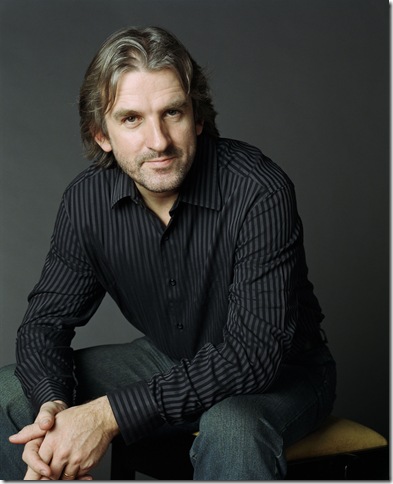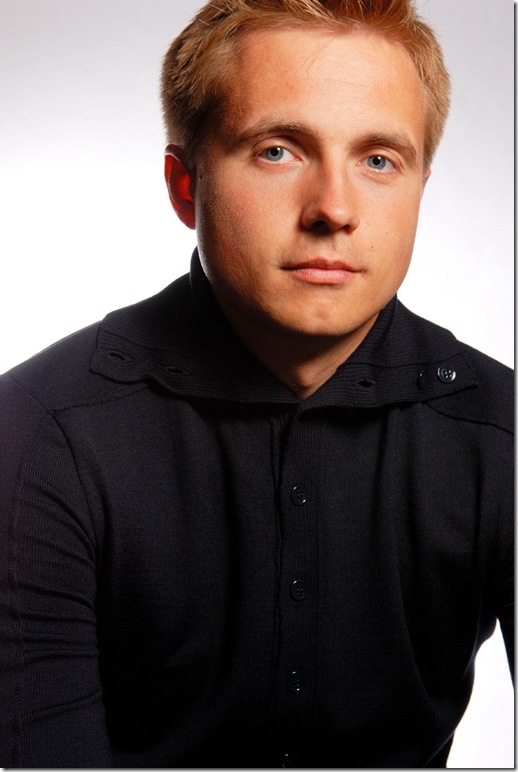Not so long ago, when the Russian National Orchestra was the house band at the Festival of the Arts Boca, one of the most notable things about the ensemble was its sheer muscle: Big orchestras tend to be plush and expansive, but this one had the striking force of an uncoiled snake.
The young Vasily Petrenko was at the helm of the RNO this past Thursday in the second of two concerts at the Kravis Center on its current tour. The all-Russian program of Tchaikovsky, Rachmaninov and Prokofiev featured the Irish pianist Barry Douglas as soloist.
In the Rachmaninov Rhapsody on a Theme of Paganini, Douglas proved a crisp, clean and tasteful soloist. His technique glittered and flashed, and he played with the orchestra rather than trying to dominate it. In the celebrated 18th variation, the one everybody knows, he played with a lovely singing tone and a feeling of tenderness and intimacy rather than Romantic abandon.
It was a surpassingly elegant performance that highlighted the clarity and sophistication of Rachmaninov’s writing. The composer was self-restricted by his choice to base a piece on the Paganini Etude No. 24, and it was all to the good: it muted Rachmaninov’s tendency to pad, and kept the work lean, mean and supremely effective. Douglas played it beautifully, and the RNO was an adept and gracious partner.
The concert opened with the Capriccio Italien (Op. 45), Tchaikovsky’s paean to Italy, a country he loved and loved to visit. It features a nice contrast between the Russian opening gambit and the Italian folksong La Ronda, among others, and it’s one of those works that’s so light and hummable that it never fails to please an audience.
And the RNO sounded impressive here, even with a slightly murky fanfare opening that lowered expectations. It’s a very fine orchestra, with plenty of bench strength in all its sections, and it also boasts a wide range of dynamics that reminds you that this is a large group with a lot of possibility.
But Petrenko’s reading of the Capriccio was rather heavy-handed, with nowhere near enough of the lightness in the Italian tunes to make the work really sound the fine piece of tourist music it is. It was strong, full and pretty, but not limber, and so it didn’t have that giddy joy in being somewhere wonderful that Tchaikovsky certainly felt and with which he imbued this piece.
The second half of the concert was devoted to the Symphony No. 5 (in B-flat, Op. 100) of Sergei Prokofiev, usually considered the best of Prokofiev’s seven symphonies, and while each of the others has something to recommend it, the Fifth generally has the best material, and it’s a fine example of the composer’s mature style.
And here, as in the Tchaikovsky, Petrenko led a version of the work that was entirely too ponderous and thick. The beauty of the writing has much to do with moments like the second movement, in which the motor-like rhythms underneath and the almost comic, high-flying clarinet make for a wonderfully astringent mix, unique to Prokofiev. But it doesn’t work as well as it should if the contrast isn’t sharp enough and the metronome isn’t set at Tempo di Mock. The RNO performance of this movement was a little too slow and the edges of the music buffed to too high a sheen, so that when that famous wind chorale comes in, it sounded too much like the rest of the music going on around it, with little sense of bite or athleticism.
In the first movement, too, you could hear this same thing just before the recap of the opening music, with that chattering motif that wanders from the higher instruments to the lower; it was lovely and well-played, but it would have worked better had it been played with more wit, more lift, had it been played more pointedly. Too often, this performance was big and meaty, and while admittedly beautiful (that trumpet chorale in the first movement, when it brings back the main theme, was stirring), what I missed here was the more mercurial side of Prokofiev’s temperament.
It was as though Petrenko wanted to make a case for the symphony by making it sound as epic as it could be, and that worked in the big climaxes such as the end of the opening movement. But there is a fractured, wrong-perspective sort of humor and sparkle that wasn’t there nearly enough to make this music really sound wholly Prokofiev.
A missed opportunity, then, but one from an excellent, ably led ensemble whose work went down well with a large, enthusiastic Kravis crowd.

